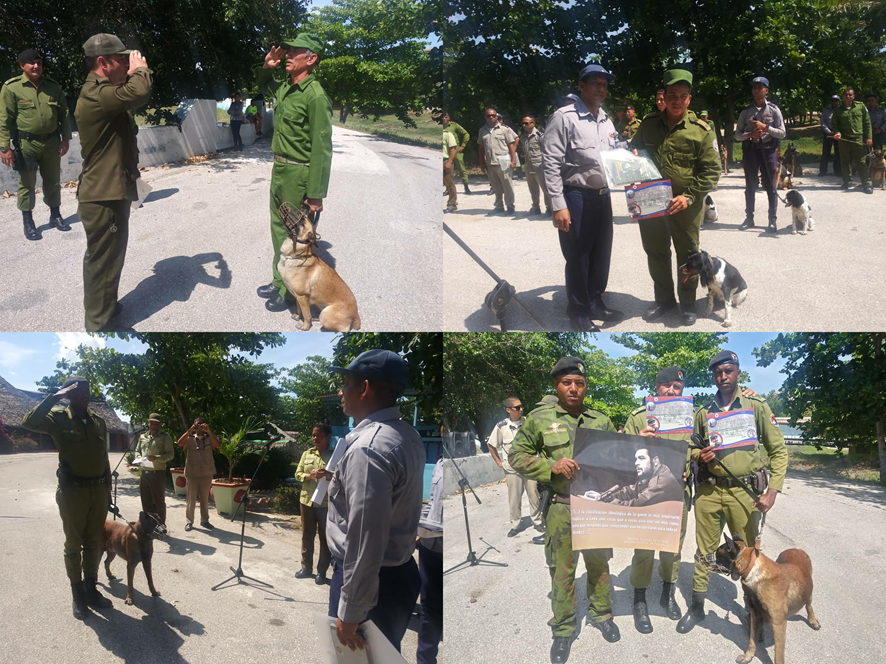
By Yadira Nuñez Figueredo/Radio Cadena Agramonte
With the purpose of achieving greater professionalism and raising the results in the work of the different dog-loving units of the Ministry of the Interior (MININT), the Provincial Competition of Canine Techniques was held, an opportunity in which the members of the Special Brigade, the Organ of Prisons, the Provincial Crime Laboratory, the General Customs of the Republic and the National Revolutionary Police demonstrated their skills in training dogs for the detection of drugs and explosives, tracking, defense and rescue and salvage work.
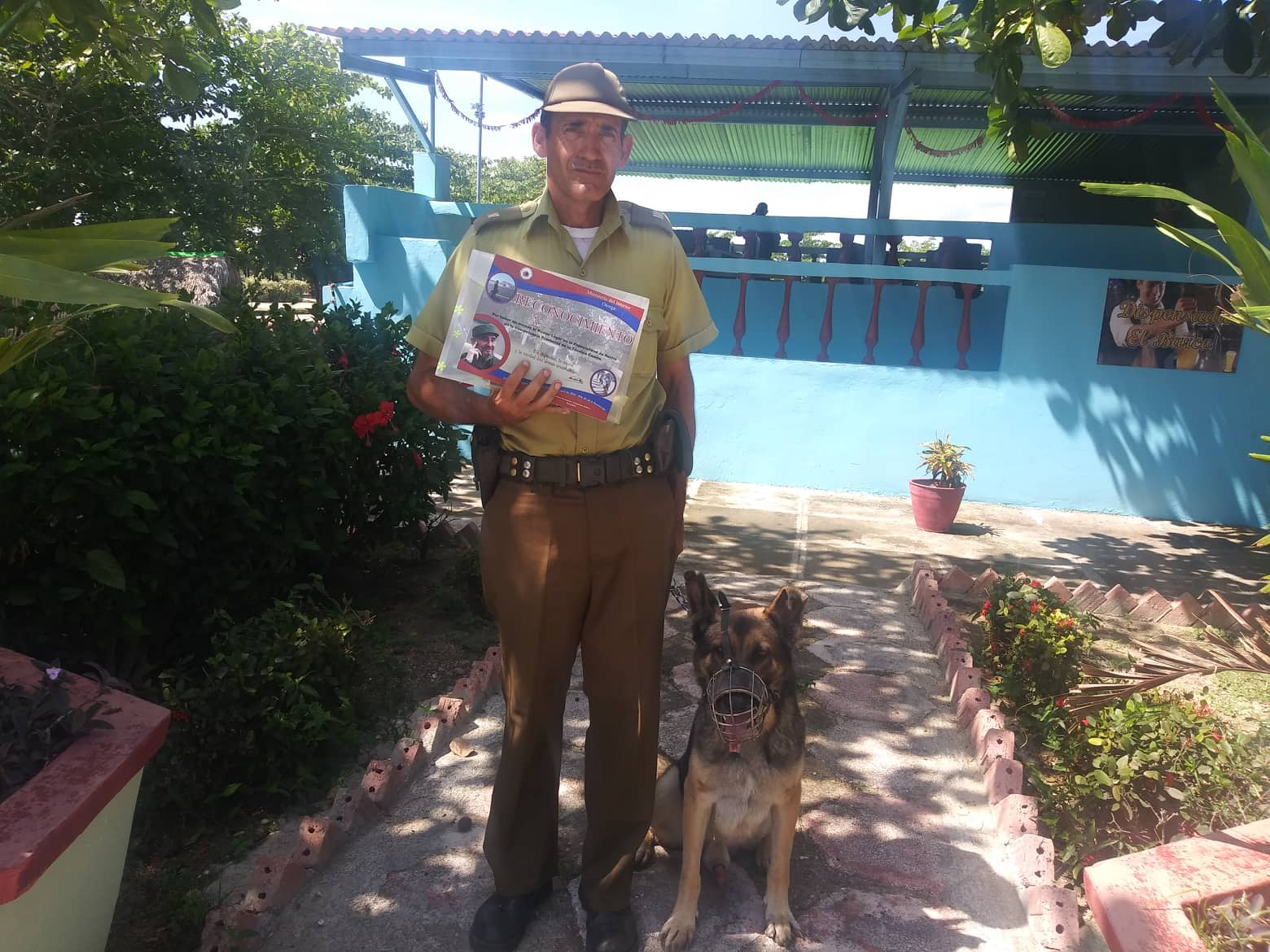
With 24 years of experience in the specialty of tracking, the first non-commissioned officer Heberto Martel Rodríguez, canine technician from the Provincial Crime Laboratory, reached first place in the meeting, recognition that, together with the Distinguished Service Medal in the MININT, honors his work, together with his faithful companion Faldo:
“For me it is a great satisfaction to contribute to the clarification of any criminal act. Throughout my years in the profession, important responsibilities have marked my career, such as the occasion in which, thanks to the fact that the dog identified the perpetrator of an act of murder, in the municipality of Florida, we were able to find the place where the woman was buried. victim. Also, some time ago, we also managed to reach the home of a citizen involved in theft of motorcycles in the Julio Antonio Mella neighborhood, and who was also linked to other acts of this type, but in homes. For more than 20 years I have trained Czech, German and Belgian Malinois, and it is an honor for me to be part of the canine technique.”
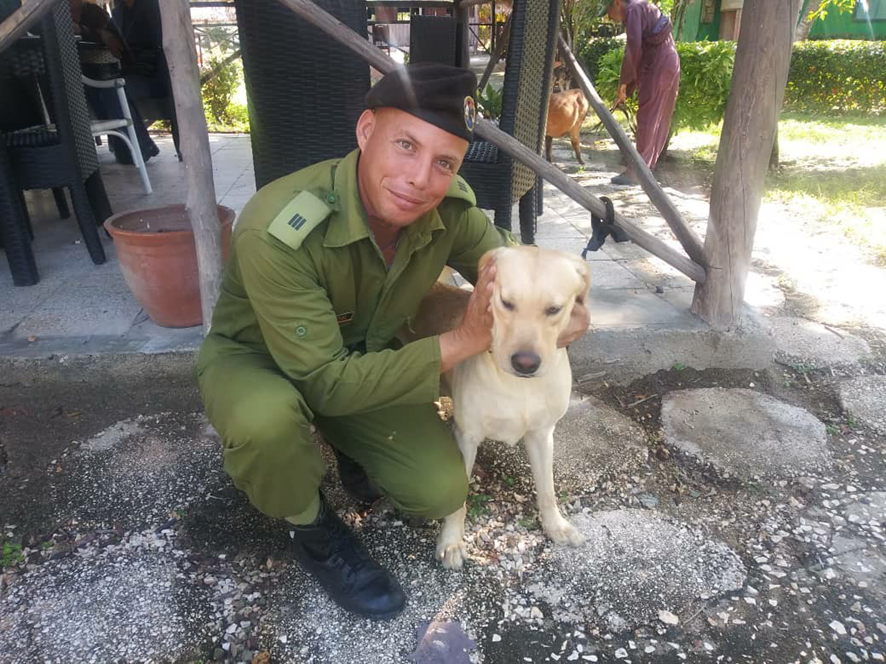
Knowing how to mix the game with discipline lies the key to good training, assures the first non-commissioned officer Rafael Pardo Sánchez, a canine technician in the Rescue and Salvage specialty of the Special Brigade:
“I work with a Labrador Retriever, which is generally a type of breed that likes to play a lot, so I take advantage of that to discipline him and teach him the skills he must develop in rescue and salvage work. A few years ago I had the opportunity to support a traffic accident in the municipality of Florida. The mission was to find the forearm of one of the victims. The dog took about five hours, but it managed to detect the target, and although it was a tragic moment, I felt satisfied to collaborate with this case, which marked my beginnings in this profession”.
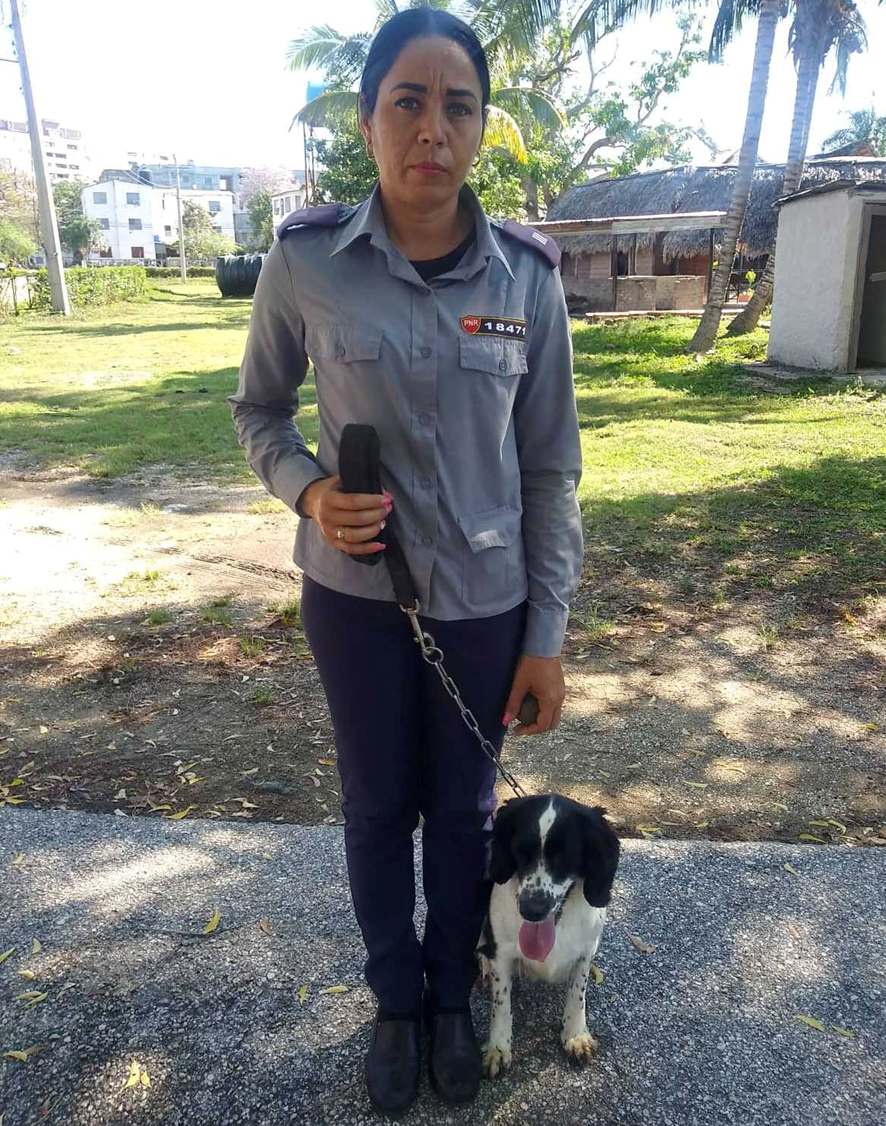
Since she was little, animals have always awakened unconditional love in the first petty officer Anneris Estrada Sánchez, a canine technician of the National Revolutionary Police. For this reason, she says, she found in MININT the opportunity to approach dogs in a different way to teach them different skills:
“It's a job I've devoted myself to for 14 years. Dogs are like another family member, because the joy with which they receive us every morning when we arrive at the unit is incredible. Thanks to daily training with them, we seized drugs in homes and at checkpoints, we also detected these types of substances in some vehicles. Undoubtedly, it is a very beautiful job, which makes us proud and commits us more every time we contribute to clarifying a criminal act”.
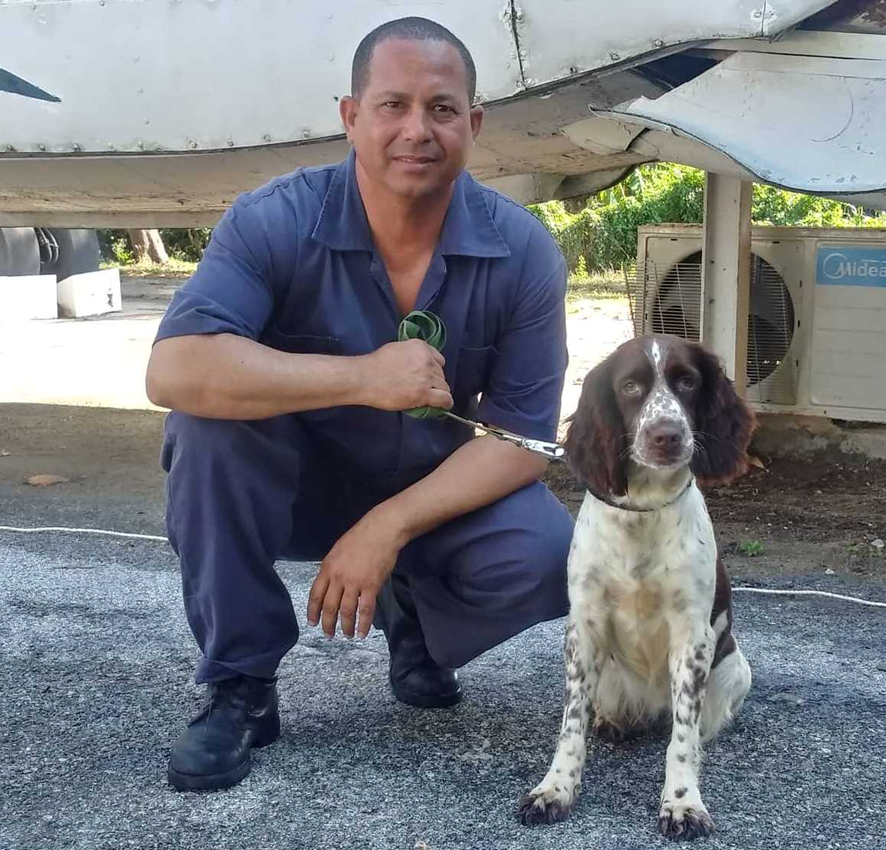
The first non-commissioned officer Erisdel Morales Hernández, canine technician of the Prisons Authority in the province, gets very emotional when he talks about that special connection he has with his dogs:
“Training takes a lot of love and permanent communication with the dog. Right now I teach a springer spaniel to look for drugs and psychotropic drugs among the relatives who come to visit the prisons. The technique is that they first look for something they like, and then we match it to the substance we want them to find. All the dogs are good and they learn what we teach them, the key is in the dedication and love that we put into that job”.
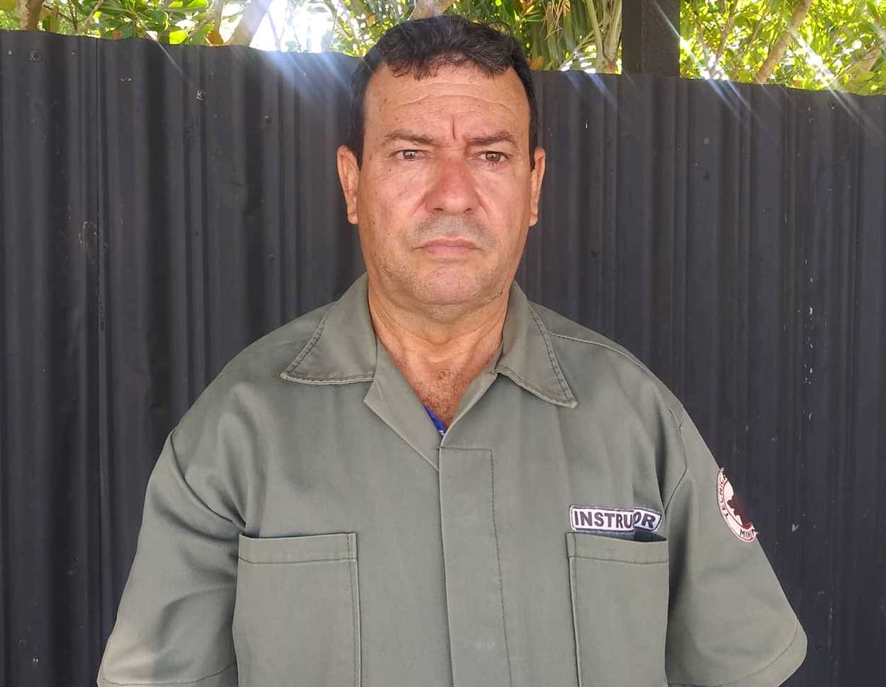
Camagüey has a Regional School of Canine Techniques where the specialties of Rescue and Salvage, Tracking and Defense are taught, comments First Lieutenant Rafael Morales Soto, director of that center:
“The objective is to prepare the dogs from the territories of Ciego de Ávila, Las Tunas and our province in correspondence with the operational situation. In the case of those who are trained for criminalistics work, we work so that, in addition to looking for prints, they select objects and people, they also detect firearms. In the case of those from the General Customs of the Republic, we train them to find drugs and explosives, and now we are directing the work so that they discover money, both euros and national currency. We teach those of the Prison Organ to locate drugs and cell phones in prisons. For their part, those of the Border Guard Troops are in irregular conditions, which is why they are adapted to looking for footprints in the mangroves and other coastal areas. We also have dogs that fulfill the mission of guarding the security cordons of the prisons. At checkpoints we use cocker spaniels or springer spaniels that are capable of pointing out a citizen who is transporting drugs, coffee or shellfish. We are very committed to the fact that, after Havana, Camagüey is the second province where the Rescue and Salvage specialty is taught and for this purpose we have a small field where the collapse of a building is simulated and there we teach the Labrador dogs to search for a human body on the surface and burials from 1.50 to 2 meters deep with rubble on top.
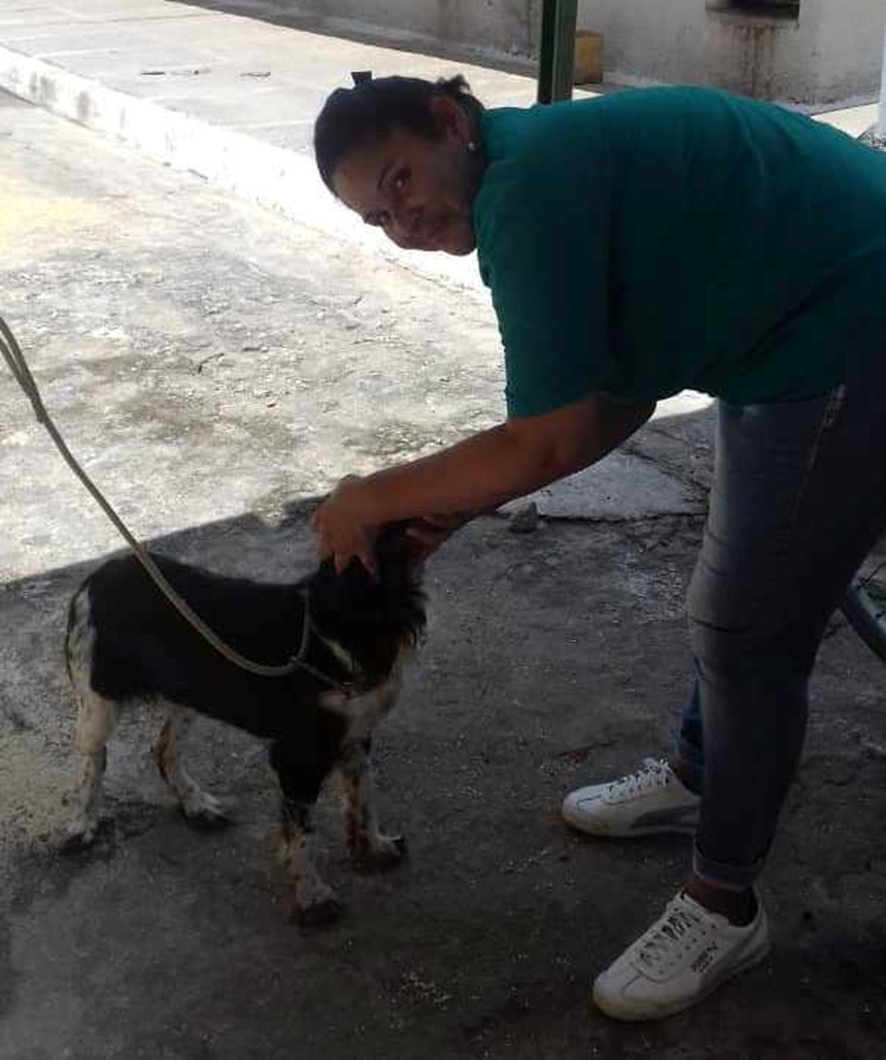
In order for dogs to fulfill such an important role within MININT, the work of the Regional Canine Polyclinic is decisive, says Dr. Yenima Rodríguez Soto:
“There we watch over the health of these animals, both those that carry out operational tasks and those that are protected in the breeding center. We also care about their diet, vaccination schemes and we maintain permanent communication with their guides, who are the ones who know them best. It is a very demanding job because they require our full attention and it is very painful when one of them remains serious and we cannot do anything for their life. Despite those sad moments, we take great comfort in saving others and then watching them go about their daily routines. Our duty is to guarantee their well-being and that is the purpose of the performance of the entire group of veterinarians”.
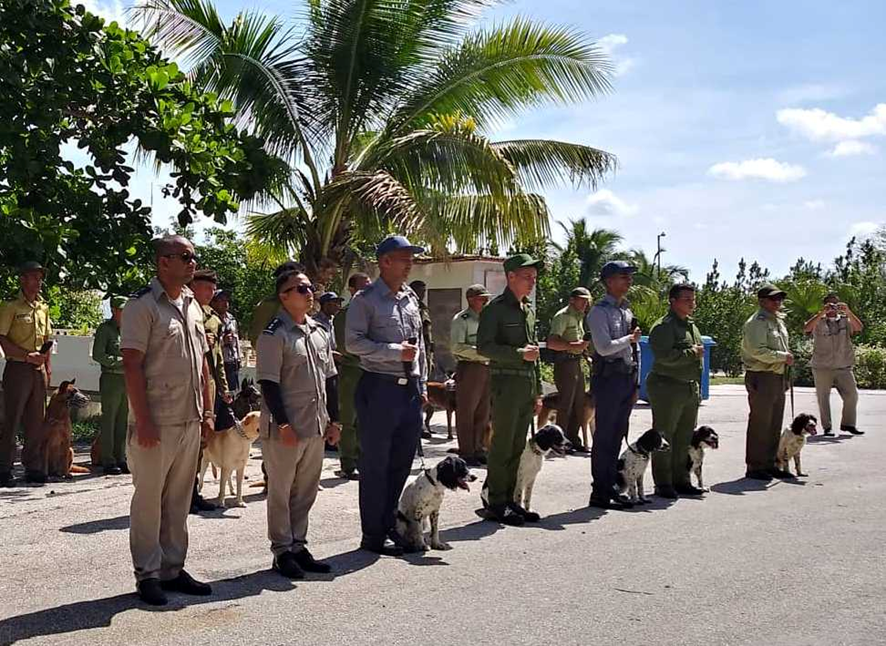
With the talent, professionalism and sense of duty that distinguishes Camagüey's canine technicians, the province will host the regional competition next July, an opportunity in which the best skills and abilities will be shown to dignify the work of the Ministry of the Interior in its mission to safeguard public order and tranquility. (Photos by the author)